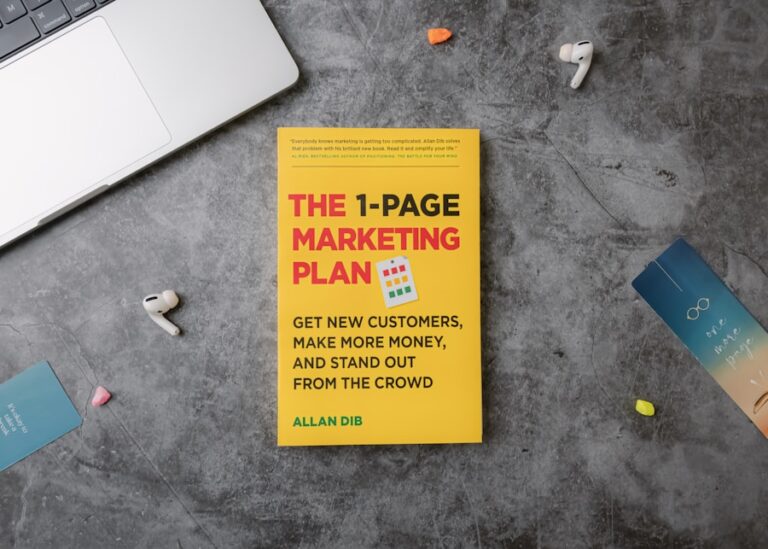In today’s digital age, social media platforms have become powerful tools for marketing and advertising, and Facebook is no exception. With over 2.7 billion monthly active users, Facebook provides authors and publishers with a massive audience to promote their books to. Facebook ads offer a cost-effective way to reach potential readers and drive book sales. By leveraging the platform’s advanced targeting options, authors can reach specific demographics, interests, and behaviors, ensuring that their ads are seen by the right audience. Additionally, Facebook’s robust analytics tools allow authors to track the performance of their ads and make data-driven decisions to optimize their campaigns for maximum results. With the ability to create engaging ad copy and compelling visuals, authors can effectively capture the attention of potential readers and drive them to purchase their books.
Furthermore, Facebook’s ad platform allows for precise targeting based on factors such as age, gender, location, interests, and more. This level of targeting ensures that authors can reach the most relevant audience for their books, increasing the likelihood of driving sales. Additionally, Facebook’s retargeting capabilities allow authors to re-engage with users who have previously interacted with their content, further increasing the chances of converting them into book buyers. With the power of Facebook ads, authors can expand their reach, increase brand awareness, and ultimately drive book sales in a cost-effective and measurable way.
Identifying Your Target Audience and Crafting Your Ad Copy
One of the key components of a successful Facebook ad campaign for book sales is identifying the target audience and crafting compelling ad copy that resonates with them. Authors must first understand who their ideal readers are and what motivates them to purchase books. By conducting thorough market research and leveraging Facebook’s audience insights tool, authors can gain valuable insights into the demographics, interests, and behaviors of their target audience. This information can then be used to create ad copy that speaks directly to the desires and pain points of potential readers, making the ad more compelling and persuasive.
Crafting effective ad copy involves creating a strong hook that captures the reader’s attention, highlighting the unique selling points of the book, and including a clear call-to-action that encourages users to take the desired action, such as purchasing the book or signing up for a mailing list. By using language that resonates with the target audience and addressing their specific needs and desires, authors can increase the effectiveness of their Facebook ads and drive more book sales. Additionally, A/B testing different ad copy variations can help authors identify which messaging resonates best with their audience and refine their approach for maximum impact.
Creating Compelling Visuals for Your Facebook Ads
In addition to crafting persuasive ad copy, creating compelling visuals is essential for capturing the attention of potential readers on Facebook. With the platform’s highly visual nature, eye-catching images or videos can make a significant impact on the success of an ad campaign. Authors should consider using high-quality images or videos that showcase the book cover, convey the mood or theme of the book, or feature endorsements or reviews from reputable sources. Including visuals that evoke emotion or curiosity can pique the interest of users scrolling through their news feed and compel them to learn more about the book.
Furthermore, Facebook offers various ad formats such as carousel ads, slideshow ads, and video ads, providing authors with creative flexibility to showcase their books in different ways. Video ads, in particular, have been shown to be highly engaging and effective in driving conversions. By creating short, attention-grabbing videos that highlight the key selling points of the book or feature author interviews or readings, authors can effectively capture the interest of potential readers and drive them to take action. Ultimately, compelling visuals play a crucial role in making Facebook ads for book sales stand out and resonate with the target audience.
Setting Up Your Facebook Ad Campaign
Once authors have identified their target audience, crafted compelling ad copy, and created engaging visuals, they can proceed to set up their Facebook ad campaign. The first step is to define the campaign objective, whether it’s driving traffic to a website, generating leads, or increasing conversions. Authors should then select their target audience based on demographics, interests, and behaviors, ensuring that their ads are reaching the most relevant users. Facebook’s ad platform also allows for advanced targeting options such as custom audiences and lookalike audiences, which can further refine the reach of the campaign.
Authors can then choose the ad format and placement that best suits their goals and budget. Whether it’s a single image ad in the news feed or a video ad in Instagram stories, selecting the right format and placement is crucial for maximizing the impact of the campaign. Additionally, authors should set a budget and schedule for their ads, ensuring that they are reaching their audience at the most optimal times. With careful planning and strategic execution, authors can set up their Facebook ad campaign for book sales with confidence and precision.
Monitoring and Analyzing the Performance of Your Ads
Once the Facebook ad campaign is live, it’s essential for authors to monitor and analyze its performance to make informed decisions and optimizations. Facebook’s ad manager provides detailed insights into key metrics such as reach, engagement, clicks, conversions, and more. By regularly reviewing these metrics, authors can gain valuable insights into how their ads are performing and identify areas for improvement. For example, if a particular ad is generating high engagement but low conversions, authors may need to reassess the ad copy or landing page to better align with user expectations.
Furthermore, A/B testing different ad variations can provide valuable data on which elements are resonating best with the target audience. By testing different visuals, ad copy, calls-to-action, or targeting options, authors can identify which combinations are driving the most book sales and refine their approach accordingly. Additionally, monitoring the performance of ads over time can reveal trends or patterns that can inform future campaign strategies. By staying vigilant and proactive in analyzing ad performance, authors can make data-driven decisions to optimize their Facebook ad campaigns for maximum results.
Optimizing Your Facebook Ad Strategy for Maximum Results
Based on the insights gained from monitoring ad performance, authors can make strategic optimizations to their Facebook ad strategy to maximize results. This may involve tweaking ad copy to better resonate with the target audience, adjusting targeting options to reach a more relevant audience segment, or refining visuals to increase engagement. Additionally, authors can experiment with different bidding strategies or ad placements to find the most cost-effective approach for driving book sales.
Furthermore, ongoing optimization involves staying abreast of industry trends and best practices for Facebook advertising. As the platform continues to evolve and introduce new features or tools, authors should adapt their strategies accordingly to stay ahead of the curve. For example, leveraging dynamic ads or implementing retargeting strategies can help authors re-engage with users who have shown interest in their books but have not yet made a purchase. By continuously refining their approach and staying agile in their strategy, authors can ensure that their Facebook ad campaigns are delivering maximum results in driving book sales.
Leveraging Facebook Pixel and Retargeting to Increase Book Sales
In addition to optimizing their ad strategy, authors can leverage advanced tools such as Facebook Pixel and retargeting to increase book sales. Facebook Pixel is a piece of code that authors can place on their website to track user behavior and gather valuable data on how users interact with their content. This data can then be used to create custom audiences based on specific actions users have taken on the website, such as viewing a product page or adding an item to cart but not completing a purchase.
By creating custom audiences with Facebook Pixel data, authors can retarget users with highly relevant ads based on their previous interactions with the website. For example, if a user has visited a book’s product page but not made a purchase, authors can retarget them with an ad featuring that specific book along with a compelling offer or incentive to complete the purchase. Retargeting allows authors to re-engage with users who have already shown interest in their books and increase the likelihood of converting them into customers.
Furthermore, Facebook Pixel data can also be used to track conversions and measure the effectiveness of ad campaigns in driving book sales. By gaining insights into which ads are driving the most conversions and which are falling short, authors can allocate their budget more effectively and optimize their campaigns for better results. Ultimately, leveraging Facebook Pixel and retargeting capabilities allows authors to create highly personalized and targeted ad experiences that increase book sales and drive revenue.
In conclusion, Facebook ads offer a powerful platform for authors to promote their books and drive sales in a cost-effective and measurable way. By understanding the power of Facebook ads and leveraging advanced targeting options, authors can reach specific demographics and interests with precision. Crafting compelling ad copy and visuals that resonate with the target audience is essential for capturing attention and driving engagement. Setting up a well-planned Facebook ad campaign involves defining objectives, selecting target audiences, choosing ad formats and placements, and setting budgets and schedules strategically.
Monitoring and analyzing ad performance provides valuable insights into how campaigns are performing and where optimizations are needed. By making data-driven decisions and continuously optimizing their ad strategy based on performance insights, authors can ensure that their Facebook ad campaigns are delivering maximum results in driving book sales. Leveraging advanced tools such as Facebook Pixel and retargeting allows authors to create highly personalized ad experiences that re-engage users who have shown interest in their books but have not yet made a purchase. Ultimately, by mastering the art of Facebook advertising for book sales and staying agile in their approach, authors can expand their reach, increase brand awareness, and drive revenue through effective ad campaigns on the platform.




